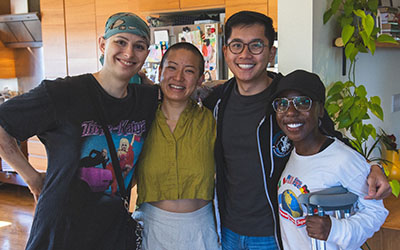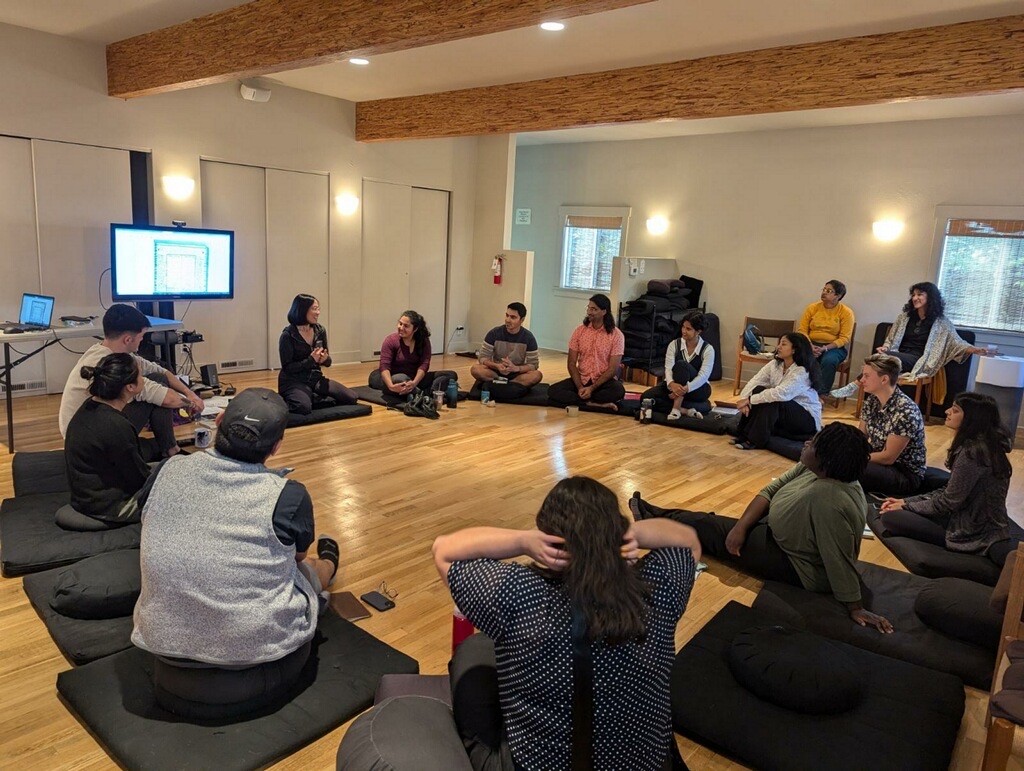Mission: To train a diverse group of pediatric residents to advance health equity for children and communities who are underserved and/or marginalized through collaborative clinical care, community partnership, advocacy, community organizing, research and education.
The University of Washington/Seattle Children's Pediatric Residency Health Equity Track (HET) is designed to train the next generation of leaders and transformative thinkers in pediatric health equity across the clinical care spectrum.
There are four priorities of the HET:
- Critical engagement, education and training on a number of issues related to health equity, social justice and leadership
- Focused mentorship
- Protected time to work on a health equity project
- Community building
 Throughout their three years of training, residents will have seven dedicated blocks to focus on growing skills to recognize the roots of health inequity and effectively strategize to mobilize resources and interventions to advance health equity and justice for our children, adolescents and communities. Residents in the Health Equity Track will develop meaningful work within their preferred area of focus, including, but not limited to legislative and other forms of advocacy, quality improvement, health-equity centered writing and reflection and community-engaged activism and research.
Throughout their three years of training, residents will have seven dedicated blocks to focus on growing skills to recognize the roots of health inequity and effectively strategize to mobilize resources and interventions to advance health equity and justice for our children, adolescents and communities. Residents in the Health Equity Track will develop meaningful work within their preferred area of focus, including, but not limited to legislative and other forms of advocacy, quality improvement, health-equity centered writing and reflection and community-engaged activism and research.
Residents will have the opportunity to partner and learn from leaders within the community as well as within academic medicine in their work and through a dedicated curriculum (1 block each year), longitudinal gatherings (4 per year) and individualized mentorship (with select HET faculty and other faculty engaged in health equity work across the institution). Emphasis will also be placed on personal growth and development, including opportunities for self-reflection, inquiry and exploration of personal histories and goals.
Some of the interests/work that our residents have engaged in are:
- Developing curricula to counter race-based medicine
- Partnering with gender diverse and unstably housed teens to improve their health outcomes
- Various community health projects with local refugee/immigrant community
- Bringing community organizing principles into clinic spaces
- Partnering with faculty to bring structured anti-racism mentorship to trainees
- Partnering with local high schools on OUD and harm reduction
- Organizing to advocate for gender affirming care
Why choose the Health Equity Track?
 You are interested in becoming a leader in the field of pediatric health equity and are seeking dedicated training in recognizing and addressing structural causes of health inequity, including the development of leadership and advocacy skills, formation of community partnerships, understanding how to mobilize resources to create effective change and becoming part of a community of pediatricians dedicated to advancing health justice.
You are interested in becoming a leader in the field of pediatric health equity and are seeking dedicated training in recognizing and addressing structural causes of health inequity, including the development of leadership and advocacy skills, formation of community partnerships, understanding how to mobilize resources to create effective change and becoming part of a community of pediatricians dedicated to advancing health justice.
You are interested in building inclusive partnerships with community members and organizations to advocate for communities that are furthest from health justice with a liberatory and anti-oppression lens.
You have lived experiences in health or other social inequities and you are motivated to reflect and build on your personal strengths to become a leading voice of change.
How will residents’ time be spent?
Residen ts have 19 weeks of HET time dispersed throughout their three years of residency. In the fall, all HET residents (R1-3s) have a shared HET ~4 week curriculum block that aims to further develop necessary leadership, inquiry and narrative skills as well as to learn from community and academic experts on a number of topics. Central to this month is the building of community and the practice of solidarity among the residents and faculty of the track, as well as engagement with key leaders across Seattle and King County.
ts have 19 weeks of HET time dispersed throughout their three years of residency. In the fall, all HET residents (R1-3s) have a shared HET ~4 week curriculum block that aims to further develop necessary leadership, inquiry and narrative skills as well as to learn from community and academic experts on a number of topics. Central to this month is the building of community and the practice of solidarity among the residents and faculty of the track, as well as engagement with key leaders across Seattle and King County.
The remainder of the HET weeks will occur throughout the rest of the year, with more HET time during R2 and R3 years. These dispersed week focus on meaningful work, scholarship development, and implementation. Once resident interests are identified, a mentorship committee is convened, comprised of faculty in the resident’s area of interest as well as a HET faculty member. The committee helps connect the resident with mentors and provides guidance on scholarly work.
As in our categorical program, our Health Equity Track residents participate in our WWAMI rotation during the R2 year. Residents will also build their continuity clinic patient panels in partnership with Odessa Brown Children’s Clinic (OBCC), SeaMar Community Health Centers, and the Pediatric Clinic at Harborview. Due to curricular and time constraints, HET residents are not eligible to participate in other tracks or pathways within our training program, such as the REACH pathway.
How do I apply to the Health Equity Track?
As with the other individualized training tracks, the Health Equity Track residents will be firmly integrated within the categorical program and are a part of the larger family of the pediatric residency program.
Given the dedicated time allocated to community-based projects and skill building, there is a separate match number to apply to the Health Equity Track. To be considered for both the categorical program and the Health Equity Track, you must apply to each separately using their individual match numbers. See more details here.
Program Leadership
- Sabreen Akhter, DO, Director, Health Equity Track, Pediatric Emergency Medicine
- Alissa Darden, MD, Residency Program Director, Primary Care Pediatrics
- Elizabeth Dawson-Hahn, MD, Site Director, Odessa Brown Children’s Clinic, Primary Care Pediatrics
- Anisa Ibrahim, MD, Site Director, Harborview Clinic, Primary Care Pediatrics
- Vaidehi Pidaparti, MD, Core Faculty, Primary Care Pediatrics
- Tracy Seimears, MD, MEd, Associate Program Director, Pediatric Hospitalist Medicine
- Angela Zhang, MD, Executive Resident
- Kanwarabijit Thind, MD, Executive Resident